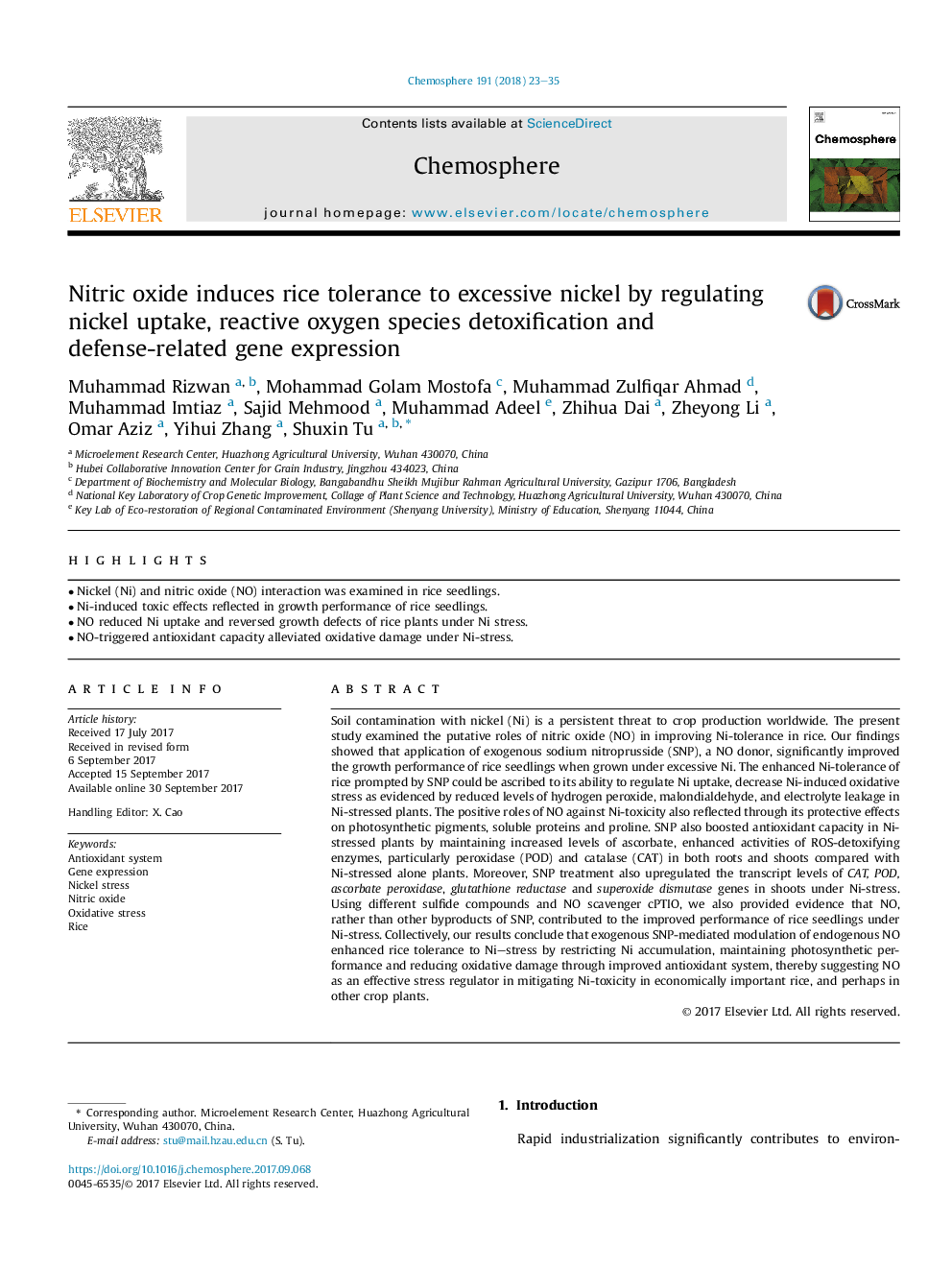| کد مقاله | کد نشریه | سال انتشار | مقاله انگلیسی | نسخه تمام متن |
|---|---|---|---|---|
| 5745702 | 1618780 | 2018 | 13 صفحه PDF | دانلود رایگان |
- Nickel (Ni) and nitric oxide (NO) interaction was examined in rice seedlings.
- Ni-induced toxic effects reflected in growth performance of rice seedlings.
- NO reduced Ni uptake and reversed growth defects of rice plants under Ni stress.
- NO-triggered antioxidant capacity alleviated oxidative damage under Ni-stress.
Soil contamination with nickel (Ni) is a persistent threat to crop production worldwide. The present study examined the putative roles of nitric oxide (NO) in improving Ni-tolerance in rice. Our findings showed that application of exogenous sodium nitroprusside (SNP), a NO donor, significantly improved the growth performance of rice seedlings when grown under excessive Ni. The enhanced Ni-tolerance of rice prompted by SNP could be ascribed to its ability to regulate Ni uptake, decrease Ni-induced oxidative stress as evidenced by reduced levels of hydrogen peroxide, malondialdehyde, and electrolyte leakage in Ni-stressed plants. The positive roles of NO against Ni-toxicity also reflected through its protective effects on photosynthetic pigments, soluble proteins and proline. SNP also boosted antioxidant capacity in Ni-stressed plants by maintaining increased levels of ascorbate, enhanced activities of ROS-detoxifying enzymes, particularly peroxidase (POD) and catalase (CAT) in both roots and shoots compared with Ni-stressed alone plants. Moreover, SNP treatment also upregulated the transcript levels of CAT, POD, ascorbate peroxidase, glutathione reductase and superoxide dismutase genes in shoots under Ni-stress. Using different sulfide compounds and NO scavenger cPTIO, we also provided evidence that NO, rather than other byproducts of SNP, contributed to the improved performance of rice seedlings under Ni-stress. Collectively, our results conclude that exogenous SNP-mediated modulation of endogenous NO enhanced rice tolerance to Ni-stress by restricting Ni accumulation, maintaining photosynthetic performance and reducing oxidative damage through improved antioxidant system, thereby suggesting NO as an effective stress regulator in mitigating Ni-toxicity in economically important rice, and perhaps in other crop plants.
Journal: Chemosphere - Volume 191, January 2018, Pages 23-35
